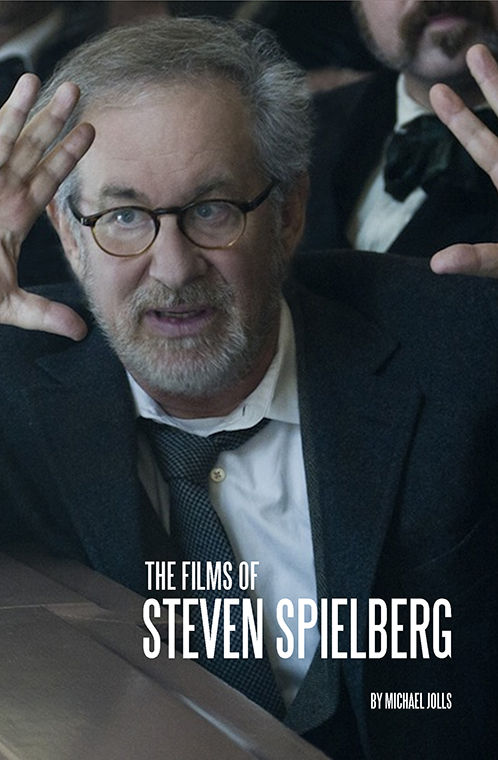Columbia alumnus takes on Spielberg in new book
March 4, 2018
Columbia alumnus Michael Jolls takes a critical look at “The Films of Steven Spielberg,” in his second book, a complex examination of the renowned director’s life and body of work.
Jolls, a producer and 2010 film student, said the book, published by Create Space, took him about a year to complete and will be released the second week of March. This is Jolls’ second book, following “The Films of Sam Mendes,” which was released in 2016, published by Under One Hour.
Jolls said after deciding to write a second book, his publicist sparked his interest in writing about Spielberg.
Noting it was a formidable task to research Spielberg extensively, Jolls said he culled information by reading other books and watching interviews with Spielberg in addition to all of his films.
Jolls said he first worked on the biographical portion of the book, and it was a challenge to respectfully represent Spielberg’s family but he was able to do so with the intense research.
“When writing the book, I wanted to make sure that I didn’t disrespect his family,” Jolls said. “I was very careful on how I wrote about that. Luckily there was a documentary that came out in October 2017 where Spielberg, his father, mother and all of his sisters were interviewed, and they laid out the answers to these kind of questions.”
Another major influence on Jolls as an author is his former professor, Laurence Knapp, he said.
After taking an “Introduction to Film” course at Oakton Community College in Des Plaines, Illinois, with Knapp, Jolls said they kept in touch. In 2014, Knapp wrote “David Fincher: Interviews,” using Jolls as assistant editor for the book. After mastering the research process, Jolls became comfortable writing his own book, he added.
“[Knapp] showed me how to do it,” Jolls said. “I credit him in a big way in how both of these books came to [exist] because of him.”
Knapp, a Humanities and Film Studies professor at Oakton, said Jolls as a student demonstrated a keen interest in the art and process of cinema that would later be beneficial to him in the writing process of the book.
“[Jolls] is sort of a cinematic true believer,” Knapp said. “He’s captivated by it and showed a real interest and zeal and from the start he had a limitless interest in film authorship, directors [and as well as] auteurs.”
Ron Falzone, associate professor in the Cinema and Television Arts Department, said he was able to work with Jolls as a participating writer on the Sam Mendes book, showing his talent in writing cinematic pieces.
“I had an opportunity to work with him on a colleague level as opposed to a student level, and thoroughly enjoyed it,” Falzone said. “I was proud of the fact that he was one of our students because he was clearly smart, clearly ambitious. I thought he had a really solid idea for that book and a good approach to the way he wanted to get it done.”
Jolls said the book will always be a work in progress to him, but he would like readers to recognize a new side of Spielberg outside of the critical eye.
“With Spielberg—and you see this very clearly—this is the growth of an artist,” Jolls said. “This is someone who is very talented, made some great movies, but ultimately [through the book] you see him mature as a filmmaker.”








